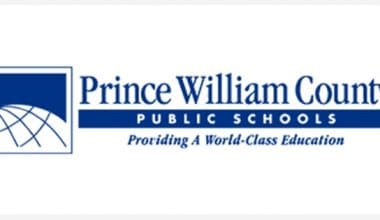Throughout history, there have been moments when a single speech has reverberated across the globe, igniting hope, inspiring change, and uniting people for a common purpose.
From the fiery rhetoric of political leaders to the impassioned pleas of civil rights activists, these top motivational speeches have transcended time and borders to shake the very foundations of society.
Each word uttered by these influential orators has sparked movements, transformed mindsets, and left an indelible mark on the collective consciousness of humanity.
In this article, we will delve into the powerful impact of these iconic speeches and explore how they continue to resonate with audiences around the world.
Table of contents
- Top Motivational Speeches That Shook the World
- 1. Martin Luther King Jr.’s “I Have a Dream” (1963)
- 2. Winston Churchill’s “We Shall Fight on the Beaches” (1940)
- 3. Steve Jobs’ Stanford Commencement Address (2005)
- 4. Nelson Mandela’s “I Am Prepared to Die” (1964)
- 5. Malala Yousafzai’s Address to the United Nations (2013)
- 6. Barack Obama’s “Yes We Can” (2008)
- 7. Elizabeth I’s “Heart and Stomach of a King”
- 8. J.K. Rowling – Harvard Commencement Address (2008)
- 9. Abraham Lincoln – Gettysburg Address (1863)
- 10. Emmeline Pankhurst – “Freedom or Death” (1913)
- 11. John F. Kennedy – Inaugural Address (1961)
- 12. Teddy Roosevelt – “The Man in the Arena” (1910)
- 13. Susan B. Anthony – “On Women’s Right to Vote” (1873)
- 14. Jawaharlal Nehru – “Tryst with Destiny” (1947)
- 15. Franklin D. Roosevelt – “The Only Thing We Have to Fear is Fear Itself” (1933)
- 16. Harvey Milk – “Hope” Speech (1978)
- 17. Socrates – “Apology” (399 BC)
- 18. Mahatma Gandhi – “Quit India” (1942)
- 19. Margaret Thatcher – “The Lady’s Not for Turning” (1980)
- 20. Harriet Tubman – “Ain’t I a Woman?” (1851)
- Powerful Motivational Speeches
- 21. Emmeline Pethick-Lawrence – “Freedom of Speech” (1912)
- 22. Ronald Reagan – “Tear Down This Wall” (1987)
- 23. William Wilberforce – “Abolition of the Slave Trade” (1789)
- 24. Harriet Beecher Stowe – “Uncle Tom’s Cabin” (1852)
- 25. Emmaline Pankhurst – “Freedom or Death” (1913)
- 27. Abigail Adams – “Remember the Ladies” (1776)
- 28. W.E.B. Du Bois – “The Souls of Black Folk” (1903)
- 29. Susan Wojcicki – Harvard Business School Class Day Address (2017)
- 30. Desmond Tutu – “Rainbow Nation” Speech (1994)
- 31. Rosa Parks – NAACP Awards Ceremony Speech (1992)
- 32. Emma Watson – United Nations Speech on Gender Equality (2014)
- Motivational Speech for Success in Life
- 33. Frederick Douglass – “What to the Slave is the Fourth of July?” (1852)
- 34. Harriet Beecher Stowe – “Sojourner Truth’s Ain’t I a Woman?” (1851)
- 35. Cicero – “First Oration Against Catiline” (63 BC)
- 36. Emmaline Pankhurst – “The Great Women’s Movement” (1913)
- 37. Harriet Tubman – “Civil War Nurse Speech” (1896)
- 38. Albert Einstein – “The Common Language of Science” (1933)
- 39. Napoleon Bonaparte – “Farewell to the Old Guard” (1814)
- 40. Susan B. Anthony – “Social Purity” (1875)
- 41. Frederick Douglass – “Lessons of the Hour” (1894)
- 42. Nelson Mandela – “Address to the Nation” (1990)
- 43. Harriet Tubman – “Scenes in the Life of Harriet Tubman” (1868)
- 44. Albert Camus – “Create Dangerously” (1957)
- 45. George Washington – “Farewell Address” (1796)
- Powerful Motivational Speech for Success in Life FAQ
- Conclusion
- References
- Recommendations
Top Motivational Speeches That Shook the World
Here are top motivational speeches that shook the world:
1. Martin Luther King Jr.’s “I Have a Dream” (1963)
Delivered on August 28, 1963, during the March on Washington for Jobs and Freedom, Martin Luther King Jr.’s “I Have a Dream” speech stands as one of the most influential speeches in American history.
King’s impassioned plea for racial equality and his vision of a future where people are judged by the content of their character rather than the color of their skin sparked a movement that culminated in the Civil Rights Act of 1964.
2. Winston Churchill’s “We Shall Fight on the Beaches” (1940)
During World War II, on June 4, 1940, Winston Churchill delivered his stirring speech to the House of Commons, rallying the British people during a time of immense peril.
His words, “We shall fight on the beaches, we shall fight on the landing grounds, we shall fight in the fields and in the streets, we shall fight in the hills; we shall never surrender,” encapsulated the unwavering spirit of resistance against Nazi aggression, inspiring resilience and determination in the face of adversity.
3. Steve Jobs’ Stanford Commencement Address (2005)
In 2005, Steve Jobs delivered an inspiring commencement address at Stanford University. Jobs shared personal anecdotes about life, death, and following one’s passions, urging graduates to pursue their dreams and not settle for the status quo.
His speech emphasized the importance of embracing failure as a stepping stone to success and encouraged listeners to find what they love and dare to pursue it.
Read Also: How to Become a Motivational Speaker In Less Time
4. Nelson Mandela’s “I Am Prepared to Die” (1964)
During the Rivonia Trial in 1964, Nelson Mandela delivered a powerful speech that showcased his unwavering commitment to the fight against apartheid.
Despite facing the possibility of a death sentence, Mandela eloquently defended his ideals of equality and freedom, stating, “I have cherished the ideal of a democratic and free society in which all persons live together in harmony and with equal opportunities.”
5. Malala Yousafzai’s Address to the United Nations (2013)
Malala Yousafzai, a Pakistani activist for female education and the youngest Nobel Prize laureate delivered a poignant speech at the United Nations in 2013.
After surviving an assassination attempt by the Taliban, Malala advocated for the rights of girls to receive education worldwide. Her impassioned plea for universal education for all children struck a chord globally, amplifying the urgency of ensuring educational opportunities for every child.
6. Barack Obama’s “Yes We Can” (2008)
Barack Obama’s 2008 presidential campaign was marked by his stirring rhetoric, particularly his “Yes We Can” speech. This address emphasized hope, unity, and the possibility of change, resonating with millions of Americans.
Obama’s message of collective responsibility and the belief in a better future galvanized a generation, leading to his historic election as the first African American president of the United States.
7. Elizabeth I’s “Heart and Stomach of a King”
In 1588, Queen Elizabeth I delivered a rallying speech at Tilbury as the Spanish Armada threatened England.
Her speech rallied her troops, declaring, “I know I have the body but of a weak and feeble woman; but I have the heart and stomach of a king, and of a king of England too.” Her unwavering resolve and leadership inspired her soldiers, instilling courage and determination in the face of impending invasion.
Read ALSO: Best Free Public Speaking Courses in
8. J.K. Rowling – Harvard Commencement Address (2008)
Rowling’s speech emphasized the importance of failure and imagination. Her anecdotes and emphasis on resilience encouraged individuals to embrace challenges as opportunities for growth.
9. Abraham Lincoln – Gettysburg Address (1863)
Lincoln’s eloquent address during the Civil War underscored the principles of unity and equality. His timeless words became a symbol of the nation’s dedication to democracy and freedom for all.
10. Emmeline Pankhurst – “Freedom or Death” (1913)
Pankhurst’s fervent speech advocating for women’s suffrage highlighted the necessity of equality and the right to vote. Her impassioned plea became a cornerstone of the suffragette movement.
11. John F. Kennedy – Inaugural Address (1961)
Kennedy’s stirring inaugural speech emphasized civic duty and collective action. His call for unity resonated globally, inspiring citizens to contribute to their nations’ betterment.
Read ALSO: Full Guide On How To Become A Court Reporter
12. Teddy Roosevelt – “The Man in the Arena” (1910)
Roosevelt’s speech celebrated the courage required to strive for greatness. His words continue to inspire individuals to pursue their aspirations with determination and resilience.
13. Susan B. Anthony – “On Women’s Right to Vote” (1873)
Anthony’s powerful advocacy for women’s suffrage resonated across generations. Her dedication to equality and voting rights laid the groundwork for future social change.
14. Jawaharlal Nehru – “Tryst with Destiny” (1947)
Nehru’s speech on India’s independence encapsulated the hopes and aspirations of millions striving for self-rule. His vision of a free and democratic India resonated deeply with the masses.
15. Franklin D. Roosevelt – “The Only Thing We Have to Fear is Fear Itself” (1933)
Roosevelt’s inaugural address during the Great Depression offered hope and reassurance. His call for courage and resilience inspired Americans to confront adversity with fortitude.
16. Harvey Milk – “Hope” Speech (1978)
Milk’s impassioned plea for LGBTQ+ rights resonated profoundly. His call for hope and authenticity paved the way for greater acceptance and progress in the fight for equality.
17. Socrates – “Apology” (399 BC)
Socrates’ defense of his philosophical teachings showcased his unwavering commitment to truth and integrity. His words continue to inspire critical thinking and the pursuit of knowledge.
18. Mahatma Gandhi – “Quit India” (1942)
Gandhi’s impassioned call for India’s independence through nonviolent resistance inspired the nation to rise against British colonial rule. His commitment to freedom and justice became a guiding light for many movements worldwide.
19. Margaret Thatcher – “The Lady’s Not for Turning” (1980)
Thatcher’s resolute speech emphasized her commitment to her policies and principles. Her unwavering determination made her a symbol of leadership and conviction.
rEAD Also: 20 Free Online Education Courses With Certificates
20. Harriet Tubman – “Ain’t I a Woman?” (1851)
Tubman’s speech advocating for women’s rights and racial equality highlighted the struggles faced by African American women. Her courage and activism laid the groundwork for social change and empowerment.
Powerful Motivational Speeches
Here are other powerful motivational speeches:
21. Emmeline Pethick-Lawrence – “Freedom of Speech” (1912)
Pethick-Lawrence’s speech advocating for freedom of speech and assembly resonated during the suffragette movement. Her emphasis on the fundamental rights of individuals remains a cornerstone of democratic societies.
22. Ronald Reagan – “Tear Down This Wall” (1987)
Reagan’s call for the dismantling of the Berlin Wall symbolized the end of the Cold War. His resolute words echoed the aspirations for freedom and unity, leading to significant geopolitical changes.
23. William Wilberforce – “Abolition of the Slave Trade” (1789)
Wilberforce’s impassioned speech advocating for the abolition of the slave trade highlighted the moral imperative to end human exploitation. His relentless efforts contributed to the eventual abolition of slavery.
24. Harriet Beecher Stowe – “Uncle Tom’s Cabin” (1852)
Stowe’s novel catalyzed the abolitionist movement. Her powerful storytelling and depiction of the harsh realities of slavery stirred public opinion against the institution of slavery.
25. Emmaline Pankhurst – “Freedom or Death” (1913)
Pankhurst’s fervent speech advocating for women’s suffrage emphasized the necessity of equality and the right to vote. Her impassioned plea for women’s rights galvanized the suffragette movement, paving the way for future advancements in gender equality.
26. “Mother Teresa – Nobel Peace Prize Acceptance Speech (1979)”
Mother Teresa’s selfless dedication to serving low-income people and marginalized was epitomized in her Nobel Peace Prize acceptance speech. Her message of compassion and love resonated globally, inspiring humanitarian efforts worldwide.
27. Abigail Adams – “Remember the Ladies” (1776)
Adams’ plea for women’s rights and equal representation in shaping a new nation highlighted the need for gender equality. Her advocacy laid the groundwork for future advancements in women’s rights.
28. W.E.B. Du Bois – “The Souls of Black Folk” (1903)
Du Bois’ poignant address highlighted the struggles of African Americans for equality and justice. His call for social change and racial upliftment became a cornerstone of the Civil Rights Movement.
29. Susan Wojcicki – Harvard Business School Class Day Address (2017)
Wojcicki’s speech emphasized the importance of resilience and embracing challenges. Her insights into leadership and innovation inspired individuals to navigate complexities with determination and vision.
30. Desmond Tutu – “Rainbow Nation” Speech (1994)
Tutu’s speech encapsulated the vision of a unified and diverse South Africa. His message of reconciliation and forgiveness echoed the ideals of a nation healing from apartheid’s wounds.
31. Rosa Parks – NAACP Awards Ceremony Speech (1992)
Parks’ speech reflected on her pivotal role in the Civil Rights Movement. Her courage and refusal to give up her seat on a bus became a symbol of resistance against racial segregation.
32. Emma Watson – United Nations Speech on Gender Equality (2014)
Watson’s address highlighted the importance of gender equality and the need for men to support feminism. Her impassioned plea for inclusivity and equal opportunities resonated globally.
Motivational Speech for Success in Life
33. Frederick Douglass – “What to the Slave is the Fourth of July?” (1852)
Douglass’ powerful motivational speech challenged the hypocrisy of celebrating freedom while millions were enslaved. His call for justice and equality reverberated, amplifying the abolitionist movement’s message.
34. Harriet Beecher Stowe – “Sojourner Truth’s Ain’t I a Woman?” (1851)
Stowe’s portrayal of Sojourner Truth’s powerful motivational speech highlighted the struggles of African American women. Truth’s impassioned plea for women’s rights and racial equality echoed the suffragette movement’s sentiments.
Read Also: 100 Informative Speech Topics for College Students 2024
35. Cicero – “First Oration Against Catiline” (63 BC)
Cicero’s eloquent speech exposed a conspiracy against the Roman Republic. His unwavering commitment to justice and the rule of law became a timeless example of statesmanship.
36. Emmaline Pankhurst – “The Great Women’s Movement” (1913)
Pankhurst’s address highlighted the need for women’s rights and the suffragette movement’s momentum. Her words galvanized the movement toward achieving equal voting rights for women.
37. Harriet Tubman – “Civil War Nurse Speech” (1896)
Tubman’s speech emphasized the contributions of African American nurses during the Civil War. Her advocacy for recognition and equality in nursing highlighted the broader struggle for racial equality.
38. Albert Einstein – “The Common Language of Science” (1933)
Einstein’s speech highlighted the importance of science as a unifying force. His call for collaboration and the pursuit of knowledge transcended borders and cultural differences.
39. Napoleon Bonaparte – “Farewell to the Old Guard” (1814)
Napoleon’s farewell speech to his old guard showcased camaraderie and loyalty. His words became emblematic of courage and sacrifice in the face of adversity.
Anthony’s speech on social purity highlighted the importance of women’s rights and autonomy. Her advocacy for women’s freedoms paved the way for social and legal reforms.
41. Frederick Douglass – “Lessons of the Hour” (1894)
Douglass’ speech on racial equality and justice underscored the ongoing struggle for civil rights. His words inspired movements advocating for equal treatment and opportunities for all.
Read ALSO: Best 5 Online Paper Writing Services Review | September Update
42. Nelson Mandela – “Address to the Nation” (1990)
Mandela’s address upon his release from prison emphasized reconciliation and forgiveness. His commitment to unity and democracy became a guiding light for South Africa’s transformation.
43. Harriet Tubman – “Scenes in the Life of Harriet Tubman” (1868)
Tubman’s narrative of her life highlighted the horrors of slavery and her quest for freedom. Her bravery and resilience inspired others to seek liberation from oppression.
44. Albert Camus – “Create Dangerously” (1957)
Camus’ speech emphasized the importance of creating art despite risks. His words encouraged individuals to embrace creativity and expression, even in challenging times.
45. George Washington – “Farewell Address” (1796)
Washington’s farewell speech emphasized the importance of unity and warned against the dangers of political division. His call for national unity resonated throughout generations.
Powerful Motivational Speech for Success in Life FAQ
Motivational speeches resonate by tapping into shared values, aspirations, and emotions. They often offer hope, courage, and a call to action, empowering listeners to effect change.
Yes, anyone can deliver a motivational speech. Authenticity, passion, and a compelling message tailored to the audience are key ingredients for an impactful speech.
Yes, many motivational speeches share elements such as storytelling, emotional appeal, a clear message, and a call to action, all aimed at inspiring and empowering listeners.
Motivational speeches have the power to shape perspectives, ignite movements, and drive societal change by instilling hope, courage, and determination in people.
Absolutely. Motivational speeches can profoundly impact individuals, transforming mindsets, instilling belief, and catalyzing personal growth and change.
Conclusion
The power of a motivational speech to inspire and drive change cannot be overstated. From Martin Luther King Jr.’s I Have a Dream speech to Steve Jobs’ Stanford commencement address, these influential speeches have resonated with audiences around the world, sparking movements and shaping history.
By harnessing the power of words and delivering messages that touch the hearts and minds of individuals, these speakers have left an indelible mark on society. As we reflect on these top motivational speeches that shook the world, let us remember their enduring impact and seek to draw inspiration from their messages in our own lives.




